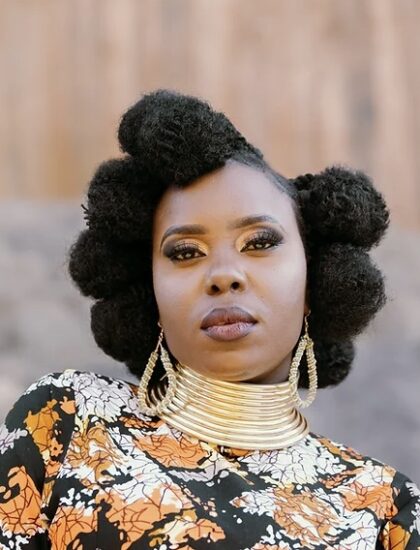Controversial Ghanaian cleric and leader of the Glorious Word Power Ministry International – Reverend Isaac Owusu Bempah – is widely known for his controversial statements and prophecies deemed outrageous, many of which have sparked heated conversations on social and traditional media.
As tabloid visible as he is, he has been accused of a number of things, and bleaching his skin is one of those.for some time now.
This week the allegations have reemerged again, and it appears that another minister, Prophet Ebenezer Adarkwa Yiadom of Ebenezer Miracle Worship Centre has had enough of it.
In a video, Yiadom, reverently called Prophet 1 by his followers, censured Rev Bempah to stop bleaching his skin as it does not speak well of him and his parish.
Derogatively and in what many could term stigmatisation of AIDS sufferers, Prophet 1 questioned why the man of God has resorted to bleaching likening him to an HIV/AIDS patient with his pale physique. Rev Bempah would not have dared to bleach his skin if he is indeed a true man of God as he has been touting, denounced the drama-catching prophet.
‘Stop bleaching, you look just like an HIV/AIDS patient, what kind of pastor bleaches, you will never bleach if you are a true pastor,’ he spewed.
His comment comes after Owusu Bempah during a sermon mentioned a list of good and bad pastors, indicating to his congregation and Ghanaians the good ones they can visit their churches to worship.
Prophet 1 described Rev Bempah as a fake pastor who deceives people with his prophecies.
Skin-bleaching—the act of using substances, mixtures, or treatments to physically lighten one’s skin tone—has been around for a long time, and it’s developed into a billion-dollar international industry.
In most black communities, it is a complex topic.
Whenever a black celebrity lightens his or her skin, they’re usually greeted with widespread ridicule. Some accuse them of self-loathing, while many in the African-American community view it as a rejection of black identity. It’s a form of self-hatred, they say.
Historically, paler skin was associated with the bourgeoisie and was thought to represent wealth and success. Darker skin was traditionally associated with menial labour and poverty, as the skin was thought to darken under the harsh conditions of outdoor work.
It would be reasonable to believe that those preconceptions have long since disappeared. However, the beauty ideals established by these notions have endured. Black people feel the pressure to conform to a Western standard of beauty – and this can mean lighter skin.
Usually, augmenting one’ skin tone by means of bleaching, whitening or brightening it usually comes with a price.
Many health practitioners who have done research around the topic says that skin bleaching is dangerous because of the many chemicals used within skin agents like creams and shower gels.
Dr Ophelia Dadzie from the London Ethnic Skin Clinic in 2016 said that long-term use of creams could have potential risks. There is a theoretical risk of skin cancer related to the use of hydroquinone, and a risk of skin thinning related to the use of potent steroids.
Systemic side effects like high blood pressure and diabetes are also related to the use of highly potent steroids over widespread areas of the body for a long time.
Other experts have stressed that the act of lightening one’s skin goes beyond the physical effect as it can also be incredibly detrimental to one’s self-confidence and mental health.
Hallelujah Magazine is committed to publishing reliable, trusted, quality and independent Christian journalism. Our journalism is free from commercial bias and is not influenced by wealthy people, politicians, clerics or shareholders. We value our readers’ feedback, suggestions and opinions. Have something to add to the story? Share it in the comments below.


















